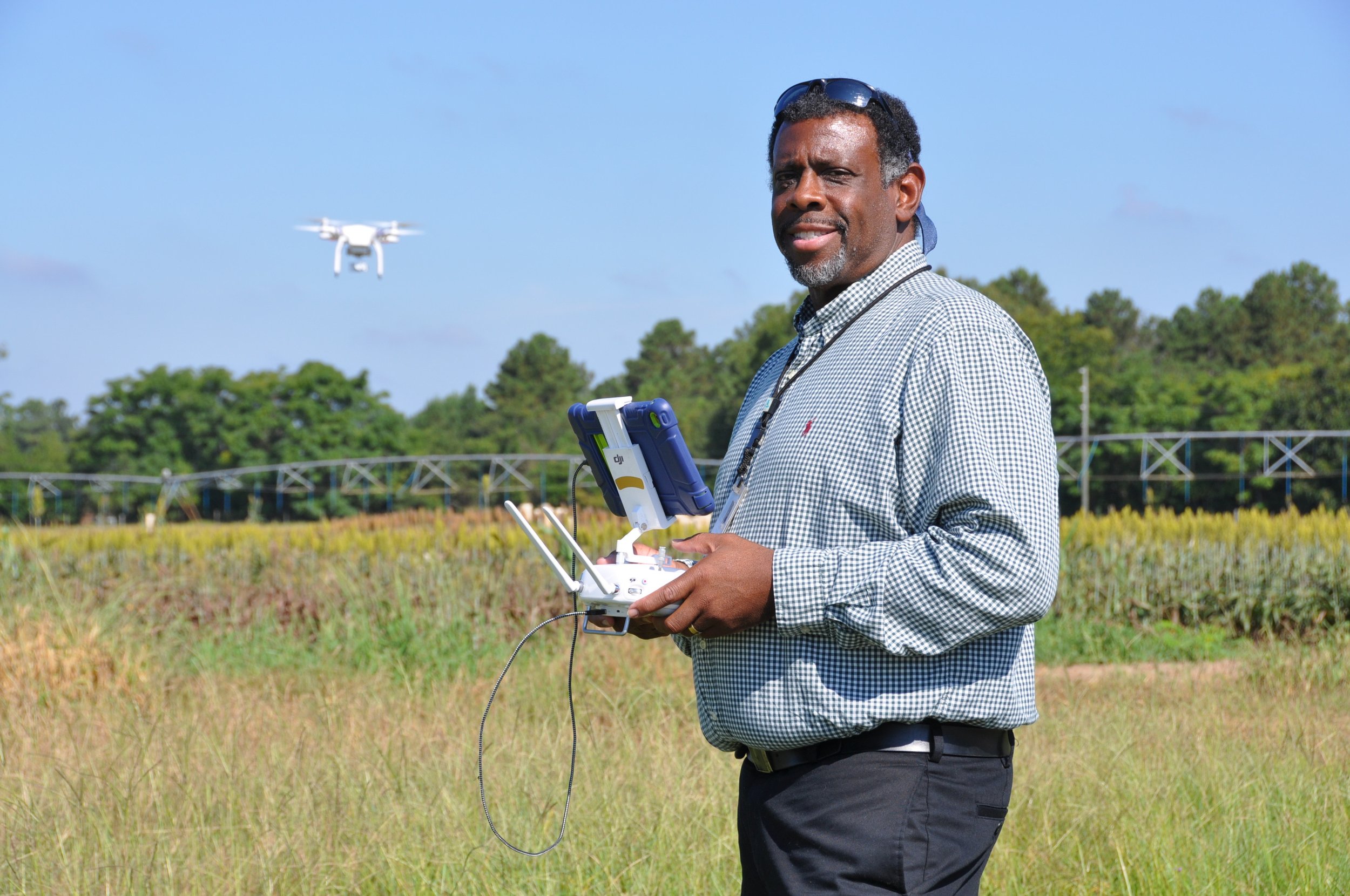Deploying Drones: Helping farmers utilize new technology to improve efficiency
FORT VALLEY STATE UNIVERSITY
PROBLEM
Farmers want to capitalize on new technologies to make farming more efficient but need more training to integrate it into their current systems.
SOLUTION
Collaborate and train farmers to determine how drone technology can provide them with direct benefits.
FUNDING
USDA NIFA Evans-Allen
RESEARCHERS
Archie Williams, PhD, FVSU
Cedric Ogden, PhD, FVSU
Graduate and undergraduate students, FVSU
Drone technology can be a powerful decision-making tool for farmers and provide a low-cost alternative to improve their efficiency and bottom line.
Dr. Williams and his colleagues at Fort Valley State University (FVSU) are “bridging-the-gap” of information between drones’ technological advances and farmers’ needs and expectations. In this way, the “pretty pictures” produced by drones become useful information for farmers.
The FVSU team is developing experimental and data collection procedures for agricultural unmanned aerial vehicle (UAV) applications and evaluating how well the UAV can identify problem areas on farms.
Researchers collaborate with farmers to learn their views on what is the most important information they need to improve production efficiencies. The team evaluates what drones can detect and record, then determine how this data can be presented in the best format for producers.
The team teaches farmers how to take fuller advantage of drone technology for practical applications. For example, they provide basic hands-on training using a software that maps out crops and locates areas that may need additional fertilizer or treatment. In this way, farmers can obtain information that applies specifically to crops they are growing on their land.
This research and outreach can make farmers’ production more efficient and sustainable. It helps farmers optimize inputs (e.g. time, money, labor, equipment, chemicals) and maximize productivity including yield and profits.
USDA NIFA’s funding is essential for this project and enables FVSU to involve students in firsthand research, which broadens their horizons on the future of agricultural engineering technology.
“As a child, I dissected my toys to figure out how they worked. My parents joked that they prayed I would learn to put things back together. They knew early on that I would become an engineer. I am still tinkering.”

